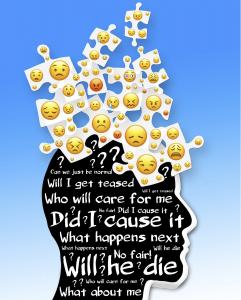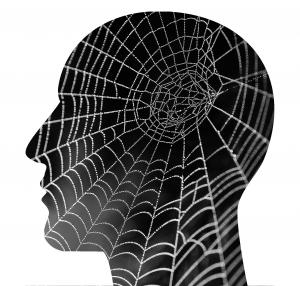
Learning to cope with loss while living with multiple mental health conditions
TW//Suicidality, Substance use disorder. Substance misuse mention. Death.
I recently learned that my mom’s friend passed away from cancer. This was someone that both of my parents have known since before I was born. She was a lifelong member of my aunt’s church and one of her closest confidants. Though we weren’t intimately connected ourselves, I considered her a dear family friend.
Whenever someone dies, especially from the same illness as my mom, it’s a trigger for me. I immediately remember her death, and my own illness and mental health episodes at the time. I specifically recall how I fell into a psychotic depression for several months afterward; both due to grief, and the stress of everything that took place. It was a difficult period in my life. And unfortunately, because I wasn’t compliant with my medication and therapy regimen, my mental health suffered. Worse yet, people around me bore the brunt of my episodes.
In general though, death is extremely hard on my psyche. It’s always been this way, beginning when I was a child. I believe it’s mainly due to the way in which tragic pain intersects with my illness. When someone dies, whether I know them personally or from afar, I go into a state of panic. I often experience severe emotional meltdowns, and even physical stress & intense pain. Death makes me feel profoundly sad and despondent. I have trouble coping with my resulting mood shifts, anxiety and rumination. I may even experience suicidality and self-harm issues.
In the past, sudden death triggered my substance use disorders as well. On the days leading up to my mom’s funeral, for example, I couldn’t handle the thought of seeing her for the last time. The day of the service was even worse. I coped by drinking alcohol to excess and taking a large quantity and variety of pills, over a short period of time. Some of them weren’t even mine, as I desperately sought out anything in my environment to alter my consciousness. I wanted to numb the pain, and I believe it was a subconscious attempt to end my life. Since then, every death I’ve known about has been very difficult to handle, even more so than when I was younger. Once I realized how negatively I respond to death, however, I decided to research the symptoms of grief and how to deal with my feelings in a healthier manner. I knew I couldn’t continue like this without major consequences.
One of the things I began doing was talking to others and journaling about my feelings. I gave a voice to complicated emotions surrounding my mom’s diagnosis and death. And even how other deaths have affected me. I began discussing mistakes I feel I made, and my sense of guilt and fear. Talking about those things allowed me to get closure for what I couldn’t change. It’s been a process of learning to accept this human experience and putting it into a context I can manage.
I also started taking my medication more regularly and working on sleep hygiene. And I’ve been trying to keep my physical environment clean and as stress-free as possible. I noticed that when I tackle these self-care matters, I’m better equipped to deal with sudden challenges in my world. In addition to all this, I’ve been more open with my therapist about my feelings and insecurities lately. He’s been instrumental in helping me devise a set of coping techniques for when I feel anxious and overwhelmed. He encourages me to talk to religious leaders in my community to feel spiritually grounded. And he helps me make plans for how to cope at a moment’s notice. This has been a tremendous source of support for me and I’m truly grateful for his assistance.
I may always have a difficult time with death, but at least now I have a variety of strategies from which to work on maintaining my overall wellness. As I’ve often mentioned, stress can exacerbate mental health symptoms. And certain mental illnesses make it challenging to deal with stressful situations. It’s a cycle I’d like to break once and for all. And even if I’m not entirely successful in this, I’m confident that I at least have a much better handle on the issue. That makes me happy.












